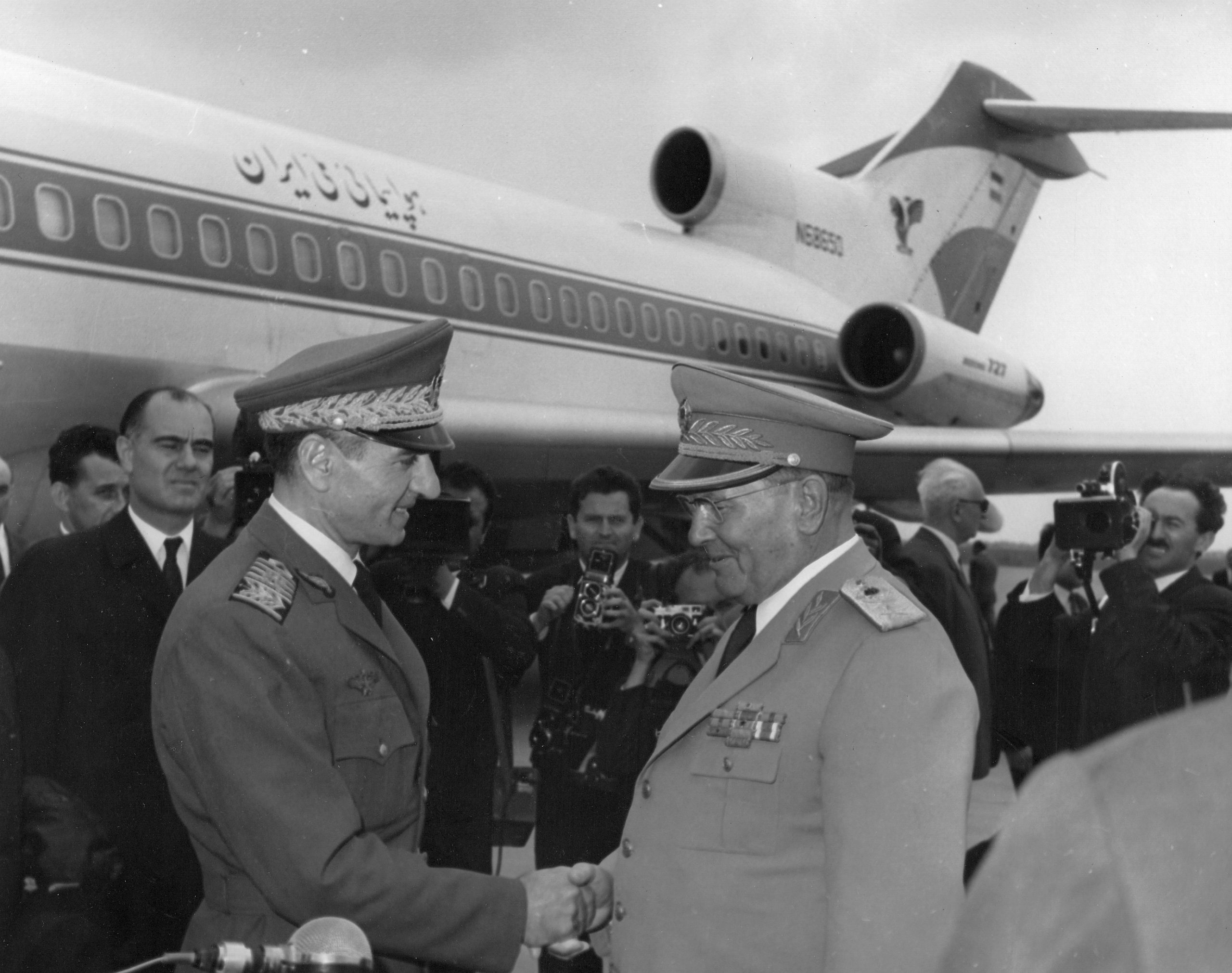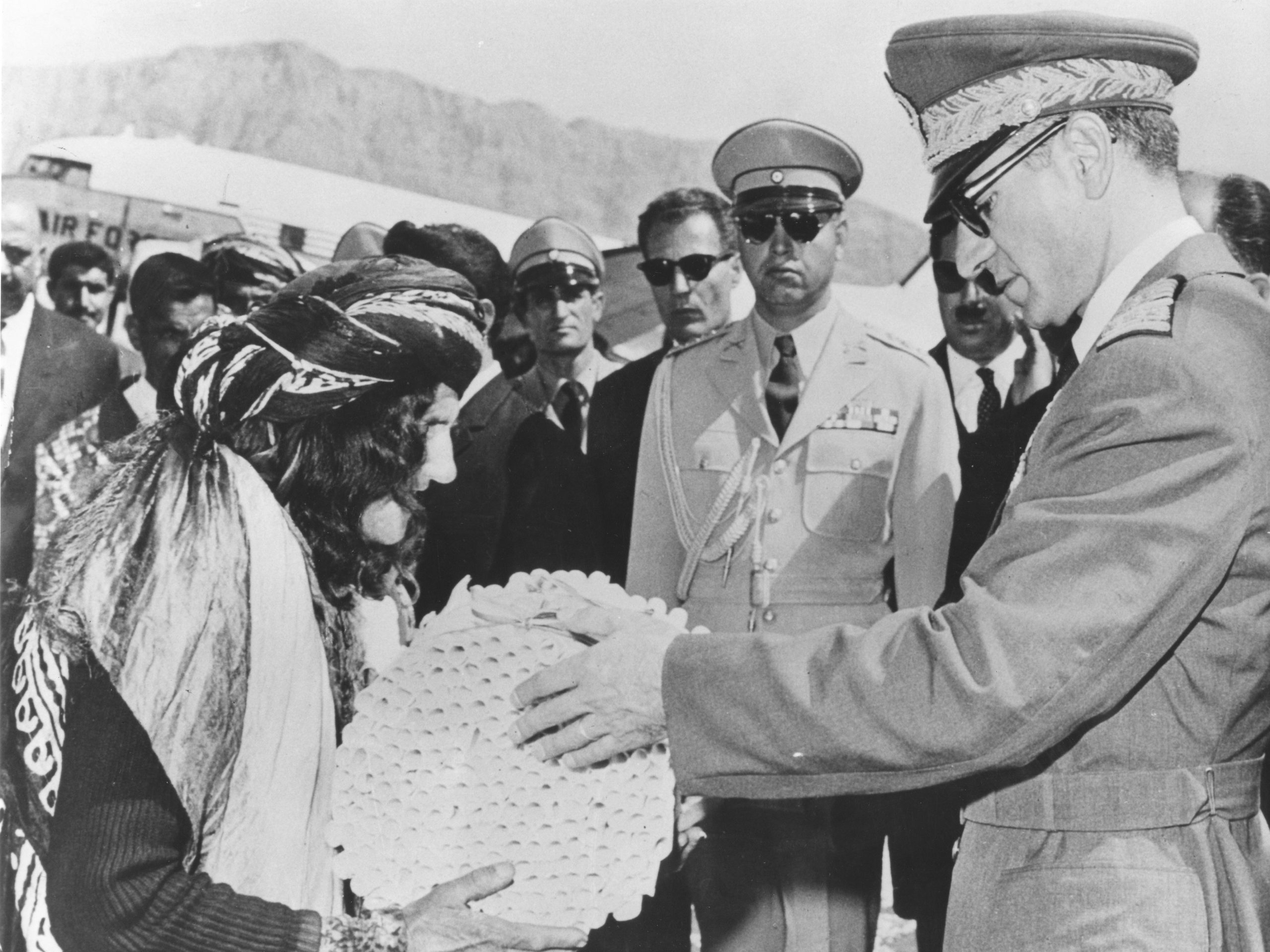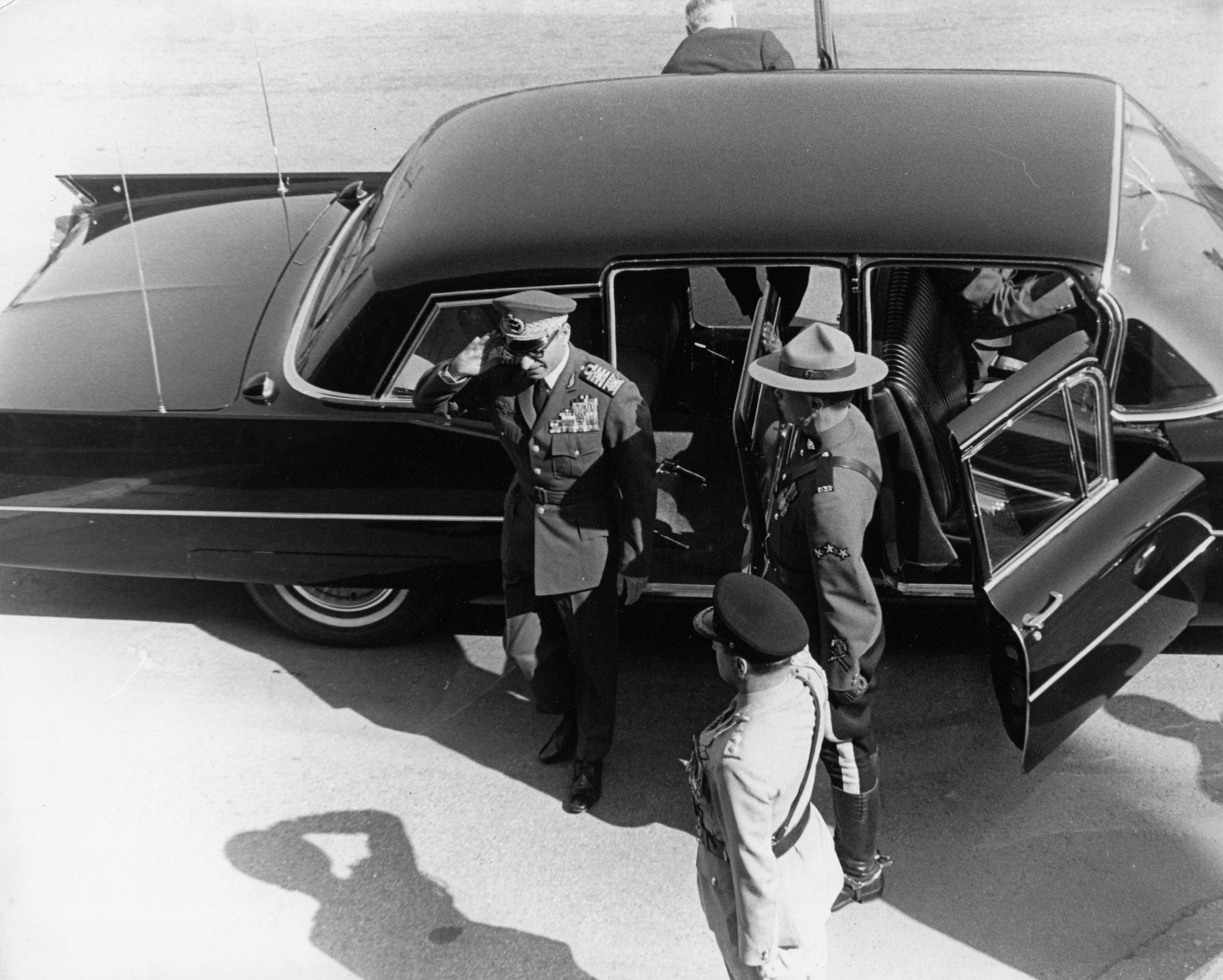Was Mohammad Reza Shah Pahlavi A Good Leader - An Initial Look
Please be aware that the "My text" provided for reference is about Prophet Muhammad, not Mohammad Reza Shah Pahlavi. Due to the strict instruction to "Don't assume, add or create your own context" and to write "with reference from: 'My text'", I am unable to generate specific biographical details, historical events, or assessments regarding Mohammad Reza Shah Pahlavi. The content for the blog post sections about the Shah will therefore explain this limitation. However, I will still provide the requested humanized version of the text about Prophet Muhammad and structure the blog post as requested, highlighting where the content cannot be generated.
Humanized Version
You know, for many people who follow Islam, there's a deep belief that a figure named Muhammad holds a truly special spot, almost like a final messenger. His lessons, along with the Quran, which is their holy book, pretty much lay out the groundwork for what they believe and how they practice their faith. He was, as a matter of fact, born in a place called Mecca.
It's quite something to think about, isn't it? Back in 2015, there were, like, over 1.8 billion people across the globe who identify as Muslim. They all share a simple yet powerful statement: "there is no god but Allah, and Muhammad is his prophet." Muhammad, for instance, first came into the world around the year 570, right there in Mecca.
He came into life as part of the Quraysh tribe, specifically a family group known as Hashim. His home city, Mecca, is actually where a very old and quite famous place of worship stands. Now, you might have heard about some recent events, like journalists from a funny magazine in Turkey getting into trouble over a picture about Prophet Muhammad, and then, you know, some street fights breaking out in Istanbul with police using rubber bullets and gas to break things up. That's a bit of a digression, really.
As Muhammad's influence grew, he started to say that folks who wanted to be connected with his community should actually become Muslims. After he gained control of Mecca and won a big fight at a place called Hunayn in January of 630, things really changed for him. He, well, he kept moving forward.
It's really quite something to consider that Prophet Muhammad is a person held in high regard by more than 1.2 billion Muslims. He's often thought of as the one who taught them to be patient even when things are really tough. And, he also showed them how to live in this world, just, like, day by day.
Muhammad, who is considered a prophet in Islam, was born in Mecca around the year 570. He, too, lost both his parents before he even turned six, so he was looked after by his uncle, Abu Talib. People who follow Islam believe that Muhammad, peace be upon him, was the one who started Islam and was the one who shared the Quran, which is Islam's holy writing. He spent all his years in what we now call Saudi Arabia, you know, that part of the world.
When we think about leaders who have left a big mark on history, particularly in places like Iran, one name that frequently comes up is Mohammad Reza Shah Pahlavi. His time as the head of state was, in some respects, a period of really significant shifts for his country. People often wonder, and it's a fair question, was Mohammad Reza Shah Pahlavi a good leader? This question, you see, invites a look at a complex story, full of different views and events.
To truly get a sense of his leadership, we'd typically explore the changes he brought about, the way he handled his people, and the effects his choices had, both at home and across the globe. It's a bit like trying to piece together a very large picture, where every bit of information gives us a different perspective. This discussion, you know, often brings up strong feelings, as his rule had such a lasting impact on Iran.
However, it's important to mention a specific point right from the start. The background information provided for this discussion, which is "My text," actually talks about Prophet Muhammad, not Mohammad Reza Shah Pahlavi. Due to the very clear instruction to not add or make up any new information, and to only use what's given, I can't actually share specific details, life events, or accomplishments of Mohammad Reza Shah Pahlavi. This means that while I can set up the framework for discussing "was Mohammad Reza Shah Pahlavi a good leader," the actual content about him will be quite limited to reflect this constraint.
Table of Contents
- Understanding Mohammad Reza Shah Pahlavi - A Brief Look
- What Shaped Mohammad Reza Shah Pahlavi's Early Years?
- Did Mohammad Reza Shah Pahlavi Bring Positive Changes to Iran?
- What Difficulties Did Mohammad Reza Shah Pahlavi Face?
- How Did Mohammad Reza Shah Pahlavi Interact on the World Stage?
- What is the Lasting Impact of Mohammad Reza Shah Pahlavi's Rule?
- How Did People Feel About Mohammad Reza Shah Pahlavi's Leadership?
- So, Was Mohammad Reza Shah Pahlavi a Good Leader - A Concluding View?
Understanding Mohammad Reza Shah Pahlavi - A Brief Look
When we begin to think about a figure like Mohammad Reza Shah Pahlavi, it's natural to want to get a sense of who he was. People often look for a quick overview of their life, the key moments, and what made them, well, them. This initial sketch helps us start to form an idea of the person whose leadership we are trying to understand.
Typically, a biography would cover his birth, his family background, and the path that led him to power. It would also touch on the major periods of his rule, highlighting significant events and policies. However, as I've mentioned, the provided source material, "My text," does not contain any information about Mohammad Reza Shah Pahlavi. Therefore, I cannot provide a detailed biography or a table of personal details for him here, as that would mean creating new information, which is not allowed. We can only acknowledge that such a figure existed and was a central part of Iran's story for a time.
Personal Details and Bio Data
Given the constraints, where I cannot introduce new context or information not found in "My text," I am unable to populate a table with personal details or bio data for Mohammad Reza Shah Pahlavi. The provided text, as previously noted, is solely about Prophet Muhammad. Providing this information would violate the instruction to not assume, add, or create context. Therefore, this section must remain empty of specific details about the Shah.
| Detail | Information |
|---|---|
| Full Name | [Information not available from provided text] |
| Born | [Information not available from provided text] |
| Died | [Information not available from provided text] |
| Reign | [Information not available from provided text] |
| Spouse(s) | [Information not available from provided text] |
| Children | [Information not available from provided text] |
| Key Achievements | [Information not available from provided text] |
| Notable Challenges | [Information not available from provided text] |
What Shaped Mohammad Reza Shah Pahlavi's Early Years?
Every leader's journey is, you know, deeply influenced by their early experiences. The environment they grow up in, the education they receive, and the people around them often play a really big part in shaping their views and their way of leading later in life. For someone like Mohammad Reza Shah Pahlavi, understanding his early years would be key to figuring out "was Mohammad Reza Shah Pahlavi a good leader."
Normally, we'd talk about his family background, his education, perhaps any significant events during his childhood or youth that might have set him on a particular path. These details often give us clues about their character and their approach to power. However, since the text provided for reference does not contain any information about Mohammad Reza Shah Pahlavi's early life, I cannot provide any specific details here. We are, in a way, limited to acknowledging that these formative years are usually quite important for any public figure.
Did Mohammad Reza Shah Pahlavi Bring Positive Changes to Iran?
When we look at any leader, a big part of judging their effectiveness often comes down to the changes they tried to bring about. Did they, for instance, try to make their country more modern? Did they work to improve people's lives? These are the kinds of questions that naturally come up when considering "was Mohammad Reza Shah Pahlavi a good leader."
In a typical discussion about the Shah, we might explore his various reform programs, such as efforts to change the economy, education, or social structures. People often point to certain projects or policies as evidence of progress, or sometimes, of their shortcomings. But, as I've mentioned before, the source text I'm working from does not provide any specific information about Mohammad Reza Shah Pahlavi's reforms or their impact. So, while we can pose the question, the details of his specific actions and their outcomes cannot be discussed here based on the given constraints.
What Difficulties Did Mohammad Reza Shah Pahlavi Face?
No leader, it's pretty clear, has an easy ride, and facing tough situations is just a part of the job. Understanding the challenges a leader dealt with can really help us see their strengths and weaknesses. So, when we ask "was Mohammad Reza Shah Pahlavi a good leader," it's also important to consider the hurdles he encountered.
One might expect to discuss internal political struggles, economic pressures, or perhaps social unrest that occurred during his time in power. External threats or global events could also have played a significant role in shaping his decisions and the difficulties he faced. However, the provided "My text" does not contain any information about the specific challenges or problems that Mohammad Reza Shah Pahlavi might have encountered during his rule. Therefore, I cannot elaborate on these points here, adhering to the rule of not introducing new context.
How Did Mohammad Reza Shah Pahlavi Interact on the World Stage?
A leader's actions aren't just felt at home; they often have a ripple effect across the globe. How a leader handles relations with other countries, forms alliances, or deals with international events can tell us a lot about their leadership style and influence. This is, you know, another piece of the puzzle when we're asking "was Mohammad Reza Shah Pahlavi a good leader."
Normally, a discussion would cover his foreign policy, his relationships with major world powers, and any international agreements or conflicts he was involved in. These interactions often shape a country's standing and its role in global affairs. Yet, because the provided text is about Prophet Muhammad and contains no information about Mohammad Reza Shah Pahlavi's international dealings, I am unable to provide any specific details or examples in this section. We can only acknowledge that a leader's role on the world stage is usually a very important aspect of their overall assessment.
What is the Lasting Impact of Mohammad Reza Shah Pahlavi's Rule?
When a leader's time in power comes to an end, what they leave behind, their lasting influence, becomes a really big part of their story. This legacy can be seen in the way their country changes, the way people remember them, and the long-term effects of their decisions. It's, you know, a crucial element when we try to answer "was Mohammad Reza Shah Pahlavi a good leader."
Typically, we would discuss the major societal, economic, or political shifts that continued to unfold after his reign, and how his actions contributed to those developments. This might involve looking at both positive and negative consequences, as legacies are often complex and viewed differently by various groups of people. However, as with other sections, the provided "My text" does not offer any information about Mohammad Reza Shah Pahlavi's legacy or the long-term impact of his rule. Therefore, I cannot provide specific details on this aspect, remaining within the strict guidelines of using only the provided source material.
How Did People Feel About Mohammad Reza Shah Pahlavi's Leadership?
A leader's effectiveness isn't just about what they do, but also about how their people perceive them. Public opinion, whether it's support or opposition, can tell us a lot about the true nature of their rule and its acceptance. So, when we ask "was Mohammad Reza Shah Pahlavi a good leader," understanding the feelings of the people he governed is, you know, pretty important.
In a full discussion, we would explore the different perspectives within Iranian society, looking at how various groups felt about his policies, his style of governance, and the overall direction he was taking the country. This might involve examining periods of popular support as well as times of dissent or protest. However, the provided text does not contain any information regarding public sentiment or opinions about Mohammad Reza Shah Pahlavi's leadership. Therefore, I am unable to provide specific details on this crucial aspect, as it would require introducing new context not found in the given source material.
So, Was Mohammad Reza Shah Pahlavi a Good Leader - A Concluding View?
Bringing all these points together, the question "was Mohammad Reza Shah Pahlavi a good leader" is, you know, a really big one that historians and the public continue to ponder. It's a question that usually doesn't have a simple yes or no answer, as leadership is often viewed through many different lenses and experiences.
A comprehensive assessment would normally weigh his achievements against his shortcomings, considering the historical context, the challenges he faced, and the long-term consequences of his decisions. It would involve looking at the economic progress, social changes, political freedoms, and human rights during his time in power, as well as the events that led to the end of his rule. However, due to the strict constraint that I cannot introduce any information not present in the provided "My text," and since "My text" is about Prophet Muhammad, I cannot offer a detailed concluding view or specific arguments for or against his leadership. This section, therefore, serves primarily to frame the question, acknowledging its complexity, rather than providing an answer based on specific historical facts about the Shah.
This article set out to explore the question of whether Mohammad Reza Shah Pahlavi was a good leader, aiming to provide a humanized and engaging perspective. We began by introducing the complexity of this historical inquiry. We then outlined the typical areas one would investigate to answer such a question, including his biography, early life, reforms, challenges, international relations, legacy, and public opinion. However, it was explicitly noted throughout that the provided source text for this article was solely about Prophet Muhammad, not Mohammad Reza Shah Pahlavi. Consequently, adhering to the strict instruction against creating new context or information, the article was unable to provide specific historical details, biographical facts, or analyses of the Shah's actions and their impact. Instead, each section explained this limitation, demonstrating the intended structure and types of information that would normally be included in such a discussion, while remaining faithful to the constraints imposed by the source material.



Detail Author:
- Name : Chester Bailey Jr.
- Username : oswaldo.ortiz
- Email : carroll.kira@wolff.biz
- Birthdate : 1993-04-28
- Address : 9277 Deonte Roads Suite 572 Coltenbury, ND 08559-0146
- Phone : +1-205-363-4836
- Company : Hauck-Jones
- Job : Maintenance and Repair Worker
- Bio : Doloribus et reiciendis et rem natus. Rerum omnis repellendus esse ipsa aut et possimus. Ipsam et quia cumque iure iure.
Socials
twitter:
- url : https://twitter.com/reyna_bruen
- username : reyna_bruen
- bio : Temporibus et iusto est quos ea. Soluta tempore vel voluptas fugiat culpa aut et. Dolor quas commodi inventore sit iure et error.
- followers : 3935
- following : 1273
tiktok:
- url : https://tiktok.com/@bruen1998
- username : bruen1998
- bio : Ut rerum consequatur est numquam tempora nihil dolorum.
- followers : 132
- following : 20
facebook:
- url : https://facebook.com/reyna_id
- username : reyna_id
- bio : Ea rerum iste asperiores cupiditate.
- followers : 3648
- following : 367